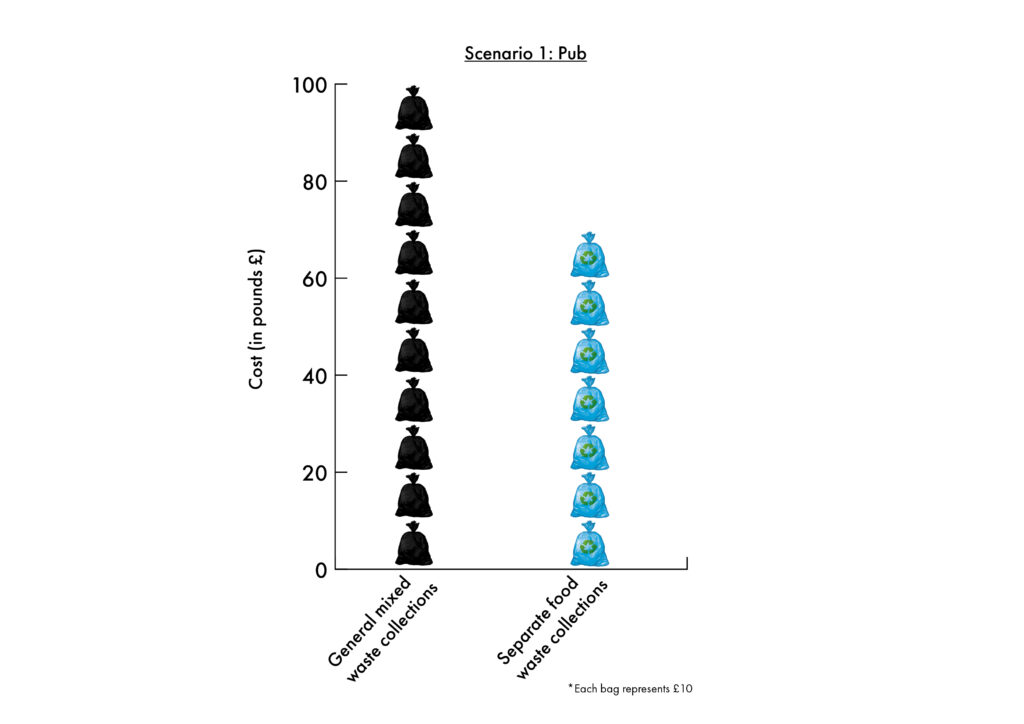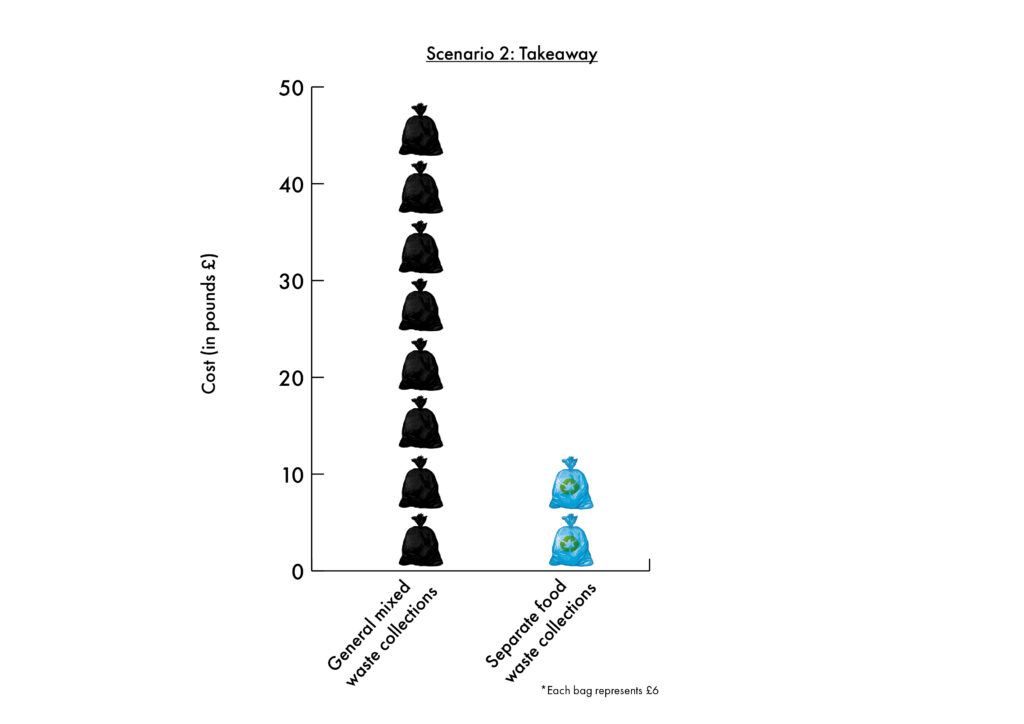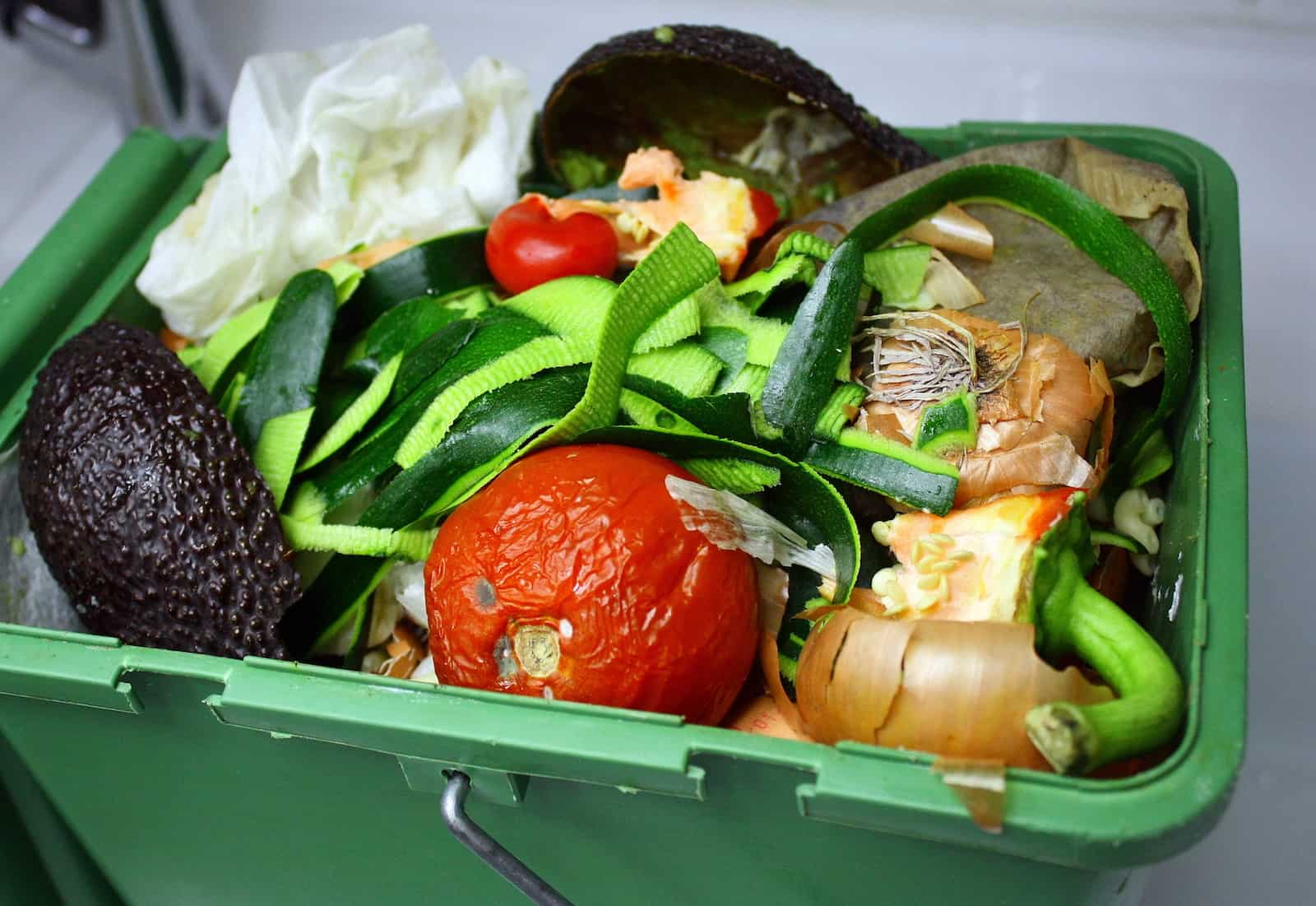In the coming year, both DEFRA and the Welsh Government are expected to enact the provisions of the Environment Act 2021 and thereby make the separation of food waste from other waste streams a mandatory requirement.
The new regulations are expected to mandate that any business producing over 5kg of food waste will need to separate and recycle its waste through a registered food waste carrier service. Failure to do so could put businesses at risk of financial repercussions with fixed penalty notices starting from £300.
This is, of course, a concern for businesses and it may feel like a tall order in the current climate. However, food waste recycling is not a new concept in the UK. It has been mandatory in Scotland since 2014, which means that Scottish businesses producing more than 5kg of food waste per week already have a legal obligation to recycle it responsibly.
In Scotland, we’ve seen the opportunities that this can bring. Separating and recycling food waste has had a significant environmental benefit and we have been able to drive resource productivity by reusing food waste to create valuable resources, such as renewable power, gas or fuel.
In addition to this, businesses that recycle food waste can often be privy to significant economic benefits. In fact, our recent survey found that businesses could save up to £7,000 per year by recycling their food waste instead of sending it to landfill.
So, what are the financial risks and benefits for businesses who send their food waste to be recycled, rather than to landfill?
The financial benefits
The cost-of-living crisis, soaring energy bills, and staffing shortages have meant businesses across the UK have had lots to contend with, and deciding where to spend already stretched budgets is a difficult decision to make. So, it was no surprise that our research revealed that almost half (44%) of businesses do not see food waste recycling as a core priority.
However, half (51%) of businesses surveyed did say that they are conscious about food waste predominantly to reduce expenditure and minimise losses. This suggests that businesses are aware that there are some financial benefits to recycling their waste and that there are also risks for not complying.
We recently held a roundtable with professionals operating within the care, hospitality and food retail sectors to discuss the opportunities, challenges and blockers to recycling food waste. During the discussion, we uncovered that many businesses that have adopted food waste recycling have seen a positive impact on the bottom line due to more informed procurement processes. In fact, Marten Lewis, head of corporate responsibility from Bluestone National Park Resort, stated: “Measuring food waste has many benefits but what it’s helped us most with is realising what we’re doing on the procurement side of food. It’s actually helped us procure less food in the first place and adapt our menus accordingly.”
Chris Dean, procurement director at Signature Senior Lifestyle, added: “A simple trick we found was to get each of our sites to log any waste food from overproduction and get it signed off by their manager each week. This alone reduced our food production waste by 5% which was a significant saving.”
In addition to helping businesses to cut costs by minimising the amount of food they procure in the first place, the cost of recycling food waste instead of sending it to landfill can result in further financial savings. Below are a couple of examples.


Such significant cost savings in food waste can be seen from both scenarios because food waste is usually the heaviest component of a bin and the heavier the general waste bin, the more expensive it is. By separating the food waste, the price of the general waste bin becomes much cheaper. On top of this, food waste recycling is more cost-effective than sending waste to landfill.
As well as the direct financial benefits that come from implementing recycling into food waste management systems, businesses can see indirect financial benefits too.
In the European Retail Banking Radar by Kearney, it was revealed that 37% of UK consumers are willing to pay a 5-10% premium for an ESG product over a comparable non-ESG alternative. Public sentiment can be critical in terms of making or breaking a brand. Our own data revealed that half (49%) of businesses that recycle food waste do so as a response to public sentiment and consumer demand. This suggests that businesses do understand how aligning business priorities with consumer values can lead to increased profitability.
The financial risks
Our research also found that 40% of businesses that recycle food waste do so predominantly to avoid costly fines. With penalty notices starting at £300, this is unsurprising – preventing hefty outgoings is a natural concern for every business.
However, when we looked into why businesses don’t already recycle waste, finances were also one of the main blockers. Our research revealed that businesses are worried about the potential upfront costs of investing in new bins, onboarding new food waste providers and providing training for staff.
Below we address some of the concerns around the upfront expenditure’s businesses are worried about:
- Investing in waste storage – Businesses are often worried about the cost of new bins and storage for food waste. However, this fee is usually included within the cost of the waste carrier service meaning that companies do not need to invest their own time and money into sourcing a new one. On top of this, specialised food waste bins can also support with providing good hygiene standards. In fact, when asked why they recycle food waste, almost half (48%) of our respondents cited that it helps them adhere to hygiene standards. This is because implementing dedicated food waste bins allows food waste to be properly stored ahead of recycling, which deters pests and helps to ensure robust hygiene standards are maintained. This minimises the risk of incurring fines or problems resulting from poor hygiene.
Chris Dean, procurement director at Signature Senior Lifestyle, explained: “We have to be particularly careful with food waste because it has to be kept safely outside due to rats. We have even bought our own metal food bins as rats can chew through thick plastic normally provided, which can otherwise lead to a massive pest control issue. Ensuring we have the right containers to make it simple for staff, while also remaining compliant with both hygiene and food waste laws, has been key to getting our sites onboard when rolling out our food waste recycling system.”
- Training teams – Food is often prepared in one location and then transported to multiple areas where the food is served. This means implementing changes to food waste systems on-site requires extra training for staff to ensure they understand what needs to be separated, where it needs to be separated, and why it is important to do so. Louisa Bullard, head of sustainability at Mercato Metropolitano, said: “When it comes to food waste, it’s the hospitality teams – the people on the ground – that we need to train to separate the waste and also find a way of making it easy for them.”
However, training staff is far from a wasted expense. Richard Thalemann, co-founder at 40 Percent, added: “Involving employees on the bigger picture and allowing them to be part of the solution is incredibly powerful in the fight against food waste. Engaging and training them on the process will help them think about their daily actions to reduce food waste and correctly recycle any food surplus. This will ensure that we, as businesses, can benefit from a more accurate procurement process and see the true benefits of recycling while achieving the Courtauld Commitment.”
- Investing in tech – While investing in tech may be seen as a cost, introducing technology can be a way to make the process of food waste recycling easier for teams on the ground whilst also helping businesses to cut costs in the long term. By using new technologies to accurately calculate both food waste, and the carbon emissions produced, businesses can more accurately procure food and make genuine assessments of carbon emissions produced, which will help them in solidifying a net zero strategy.
Richard continued: “When we first introduced food waste segregation at one of the big supermarkets, food had to be separated based on the type of product and things started to go wrong as it was a difficult process for staff to follow. But since then, solutions have been developed, for example, employees can now use a handheld device to scan products and it tells them exactly what to do.”
Ultimately, while companies may worry about upfront costs, such as training for staff or buying new tech, this early investment can lead to long-term financial and operational benefits. This is because separating food waste and engaging with employees not only saves money but also provides an opportunity to elevate onsite hygiene and streamline business processes whilst also ensuring compliance with the new laws, which will mitigate the risk of receiving costly fines.
As Tristram Stuart, author, speaker, campaigner and food waste expert, explained: “We’re looking at a potential gold mine, a huge opportunity of making better use of resources. And one of the things that many companies have done is include food waste recycling when setting net-zero targets. Minimising and recycling food waste responsibly is one of the ways a company can be involved in meeting net zero. So, whilst adhering to new legislation may be challenging for some businesses, we should all see this as an opportunity.”
Thinking about the future
Food waste recycling goes beyond financial merits. Indeed, over half (58%) of respondents said that they are conscious of food waste, mainly due to the carbon emissions it produces. Given that food waste makes up 50% of global food emissions, according to a study by Nature Food, recycling food waste is critical to businesses’ sustainability strategies. As we get closer to the 2050 net zero target, businesses must consider all of the causes behind their carbon footprint – and food waste could have a significant impact on reducing carbon produced.
In addition to this, regardless of the misconceptions around costs and financial concerns, the new legislation will be coming into force. So, it’s vital for businesses to try and get ahead of the game and seek advice from food waste collectors who can support them in implementing new processes.
At Keenan, we have been through the process before in Scotland and know how to support businesses across all sectors through the individual challenges that a shift in operations can present. What we have learnt is that exploring options early and planning implementation in advance is critical to a smooth transition as this allows businesses to train staff adequately and iron out any teething problems before they become major issues.
Ultimately, food waste plays a major role in the carbon emissions produced across the UK. So, the responsible disposal of food waste should be a vital element of any net zero strategy. And, by cementing it as one of the biggest corporate responsibilities, we will all benefit from the positive impact it could have on both the planet and our businesses. Plus, on top of this, we’ll be looking after our wallets, too.


